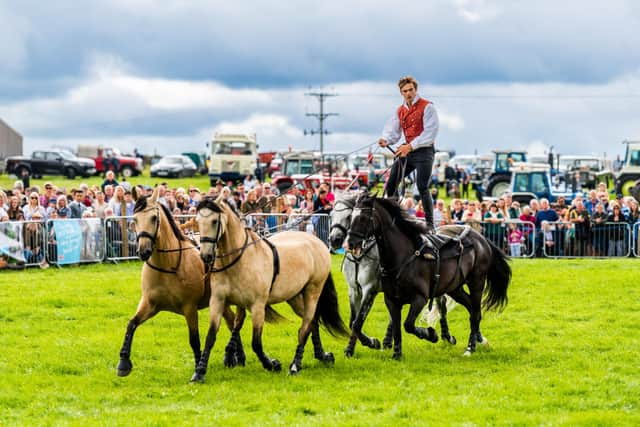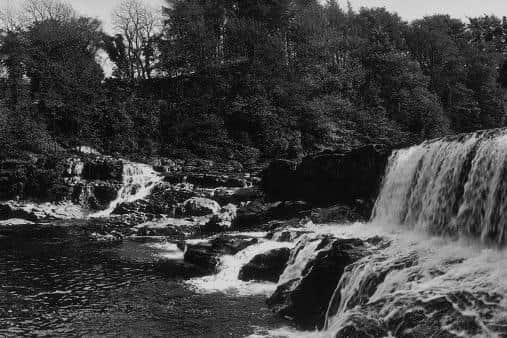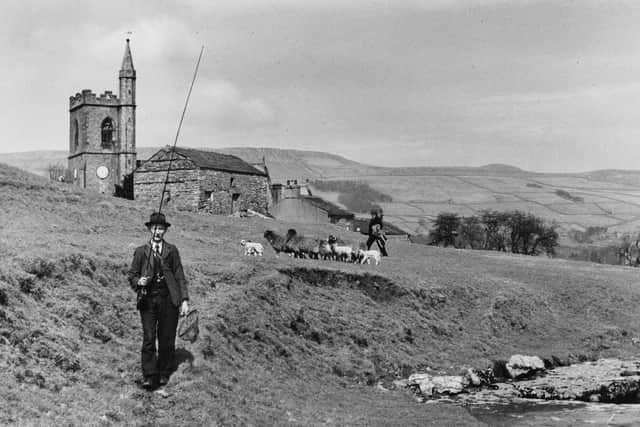Wensleydale: The history of Yorkshire Dales valley famous for its cheese and appearance in original All Creatures Great and Small TV series featured in Channel 5 show starring Helen Skelton and Dan Walker
Wensleydale’s tourism has soared over the years due to its picturesque landscapes that have attracted TV production teams for popular shows such as the 1978 series All Creatures Great and Small.
The BBC series is based on the books of veterinary surgeon Alf Wight, best known by his pen name James Herriot.
Advertisement
Hide AdAdvertisement
Hide AdMore recently, the valley appeared in the latest episode of Dan and Helen’s Pennine Adventure on Tuesday, August 29, where Dan Walker tried out different cheeses and one of Yorkshire’s culinary delights, The Yorkshire Curd Tart.


Wensleydale, formerly named Yoredale, is the dale or upper valley of the River Ure on the east side of the Pennines and one of the Yorkshire Dales.
Its main cheese production is located at Hawes and it is famous for its ales from Theakston Brewery and Black Sheep Brewery in Masham.
History of Wensleydale famous for cheese and All Creatures Great and Small
One of Wensleydale’s earliest residents and most famous families are the Metcalfes, after they emigrated from Dentdale.


Advertisement
Hide AdAdvertisement
Hide AdThe Metcalfe Society holds records dating back to Metcalfes living in the area during the 14th century.
They were considered one of the most notable families in Yorkshire for more than five hundred years.
Sir James Metcalfe, who was born in Wensleydale in 1389 and lived there all his life, was a captain in the army that fought with King Henry V in the battle of Agincourt in 1415. A manor, Nappa Hall near Askrigg, was built by his son Sir Thomas Metcalfe.
One of Wensleydale’s famous landmarks, Bolton Castle in the village of Castle Bolton, is also a notable local historic site. Building of the structure was begun by Richard le Scrope, Lord Treasurer and Lord Chancellor to Richard II, in 1378.


Advertisement
Hide AdAdvertisement
Hide AdThe building was officially completed in 1399. Mary, Queen of Scots was imprisoned there for six months in 1568, ending in January 1569, under head keeper Sir Francis Knollys.
The small village of Wensley consists of a few homes and a holiday cottage, an inn, a pub and a historic church.
The etymology of the name originates from a compound of an Old English form of the god Woden and gives its name to the dale Wensleydale. Its charter was established in 1202 and it had the only market in the dale and this continued to be the case into the 16th century.
The plague hit Wensley in 1563, resulting in survivors fleeing the village to Leyburn, but miraculously Wensley recovered from the pandemic a century later when Charles Paulet built Bolton Hall in 1678 and became Duke of Bolton.
Comment Guidelines
National World encourages reader discussion on our stories. User feedback, insights and back-and-forth exchanges add a rich layer of context to reporting. Please review our Community Guidelines before commenting.
